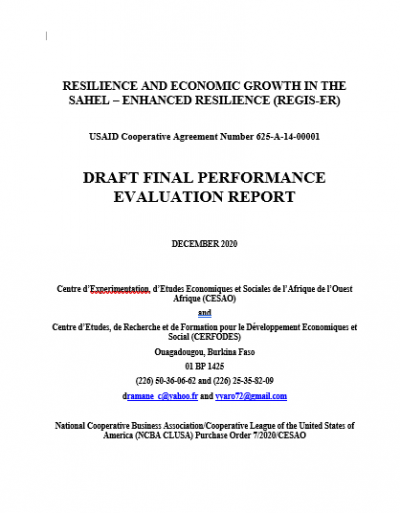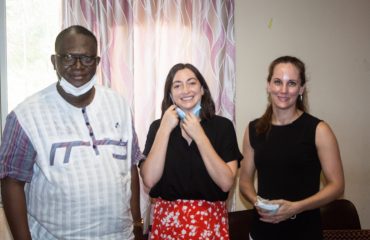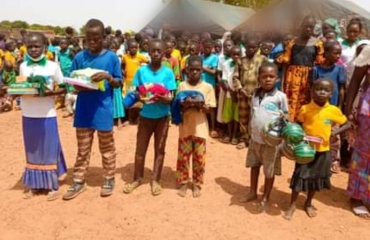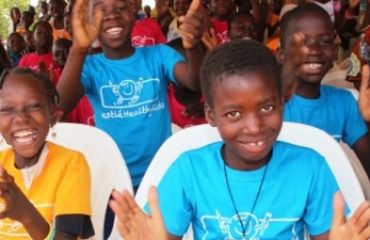The undertaking of this final evaluation of the REGIS-ER project defied standard practices. The changing nature of this complex project over more than seven years and the vastness of its implementation areas, spread over two adjoining Sahelian countries, Burkina Faso and Niger, added greatly to the challenges faced by the evaluation team. The fact that there was not any solid baseline survey at the onset of the project in November 2013, and no evaluation of the project was
undertaken at its original five-year life span in 2018, complicated matters.
The timing of this four-month (July – November 2020) evaluation effort was also fraught with exceptional obstacles. Excessive rainfall prevented access to many of the project’s targeted villages and the threat of violent extremism were key obstacles to undertaking this evaluation at this time. Furthermore, the ongoing COVID-19 pandemic during the period added to the risks of undertaking an evaluation. Nonetheless, the evaluation team did its best to produce this report. In any event, the information provided herein should be useful to USAID and other assistance agencies in planning future activities in the Sahel and elsewhere.
The results of field surveying work and dozens of interviews with past and actual beneficiaries of REGIS-ER communicated that the project did have a favorable impact on its targeted populations in both countries. It is believed this impact could have been greater if the project had been able to maintain its focus on its initial 30 communes’ districts. However, security threats have progressively reduced the coverage of the project over the past couple of years and now it is only able to work in eight communes. This changing number of focus areas and the varied number of villages reached in each area by the project, as well as the variance in project interventions in each village, further complicated the conduct of this evaluation.
It is evident that a sizeable reduction in the project’s geographic coverage area greatly reduced its overall impact. While efforts were made to evaluate the project as originally designed, these efforts were frequently thwarted because the size and composition of the project today is different than the initial project that was started in late 2013. Evaluation team members would often ask themselves the following question: “Which project phase are we evaluating?”
According to the feedback received from the project beneficiaries in the project villages surveyed for this evaluation, the project activities found to be the most useful were (in order of priority) as follows: bio-reclamation of degraded soils, Habbanayé (livestock assets) , conservation and regeneration agriculture, and the family and market gardens. Beneficiaries also expressed a high appreciation of project efforts to improve their health and nutritional levels by implementing activities that improved their access to potable water and expanded the diversity of their diets. Many beneficiaries also expressed their appreciation of behavior change activities which led them to adopt healthier practices. Efforts to increase incomes through savings and credit activities were also appreciated, but they were constrained in some areas by local habits and beliefs.
The project’s efforts to increase the participation of women in the community decision-making process are laudable. In this regard, the project has eroded to a small degree traditional customs which have excluded women from involvement in the governing of their communities. Much more work is needed in this area of gender equity, but it appears the project may have started a progressive process of expanding the role of women at the community level.
In recent years, the project has increasingly focused on strengthening local governance. This effort is at the core of the project’s sustainability plan. The project has especially worked with selected commune governments to assist them with the elaboration of commune development plans that incorporate resiliency planning. This process of building the capacity of local governments to elaborate and implement competently their own development plans is essential to sustaining many of the project’s activities in the future. Unfortunately, only a few communes have the ability to generate the funding needed to draft and implement these plans.
More information on the convoluted trajectory of this seven-year project is provided in the following report. Added detail is also provided on the areas of the two countries where the implementation of this multi-sector project were concentrated. This evaluation’s purpose and main aims, and the questions it has endeavored to answer are stated, as well as the design of this evaluation and its methodology are described.
Many of the project’s interventions were not new and have been part of a number of past development assistance efforts. Currently, there appears to be a higher level of receptivity among targeted populations to adopt many of these interventions. It is uncertain why adoption levels are higher now than previously, but it is speculated that this may be due to growing population pressures which oblige people to change their traditional behaviors and practices and try something new.
This evaluation exercise resulted in the following listing of a number of major lessons learned and key recommendations.
- Undertake a sufficiently detailed baseline survey before starting any major project.
- Evaluate a project at its original end before deciding to continue it.
- Do not attempt to undertake a complex project that covers a vast geographic area located in two countries that contains a variety of agro-ecological zones and ethnic groups.
- Denote a limited number of key performance indicators and track them assiduously.
- In order to scientifically track nutritional level of children, undertake systematic physical measurement of a statistical valid representative group of children, especially those under five year of age.
- Conduct a thorough social and cultural survey of the inhabitants of the prospective project zone before designing the project.
- Verify a prori the receptivity level of the targeted population and the potential for the voluntary spreading of project interventions to villages not targeted.
- Construct a profile of the average household and family farm and do a detailed inventory of the prospective project zone which provides am accurate estimate of the number of households, population (disaggregated), the surface area and population density as well as population growth and age structure factors.
- List the households and every beneficiary reached by the project, and note the project intervention by which they were reached,
- Focus when starting a project on building the capacity of local governance units and strengthening the local governance process with the aim of achieving their efficient independent functioning.
- Make sure there is a wide, popular buy-into the project components and not just from a handful of people in the communities.
- Explore how local governments can become financially self-sustaining so they can fund their own development plans and activities.
- Examine issues which affect the accountability and motivation levels of local traditional leaders and elected officials.
- Ideally, project evaluations in the Sahel should take place in the post-harvest dry season when people are at home and not in their fields working, and access roads are not obstructed by water. »
Core members of the evaluation team welcome any comments and questions about this draft evaluation report. Any inputs received will be used to elaborate the final version of this evaluation report. Evaluation team members would like to express their appreciation to all those who contributed to the contents of this report and made the effort to read this draft final evaluation report on the REGIS-ER project.






